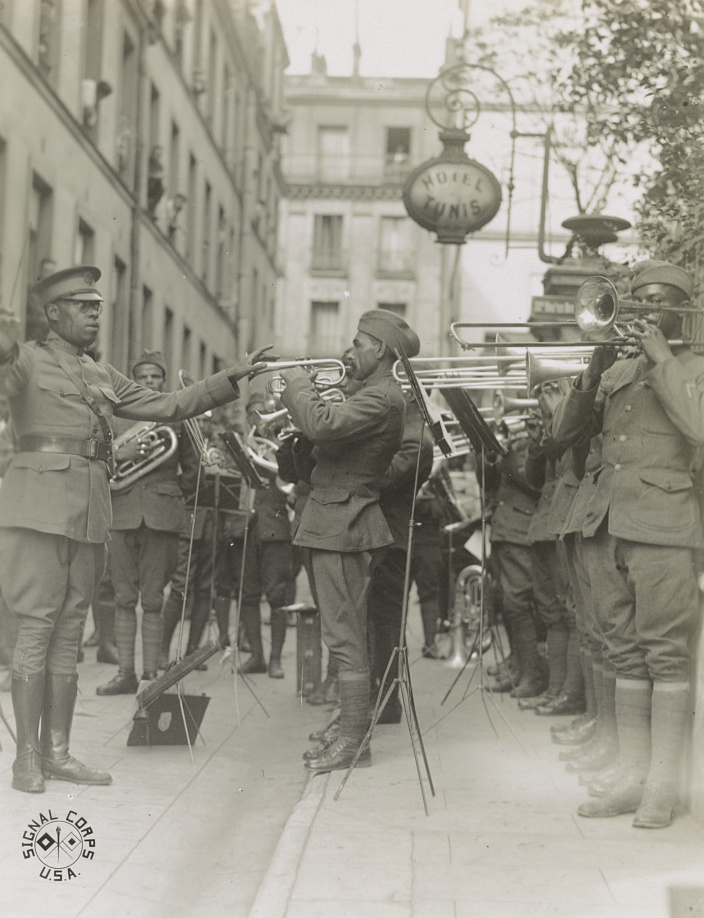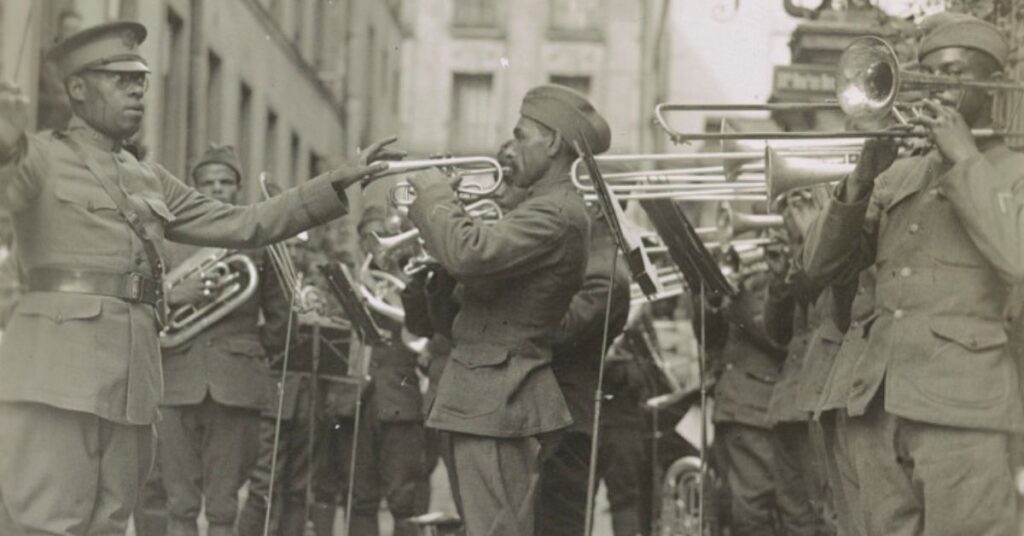(Alas, I’m having trouble sourcing this video! The narrator is a famed Black actor and I cannot remember his name. My apologies.)
During WWI, the United States had no idea what to do with an entire National Guard Regiment of Black soldiers from Harlem, so they loaned them to the French. The Harlem Hellfighters were born.
Eventually becoming the 369th Regiment, the Hellfighters not only served as the most decorated U.S. regiment in WWI, but introduced early jazz to the French. The regiment band, led by seminal jazz influence James Reese Europe, played a swinging version of the French anthem, the “Marseillaise,” that set Paris on fire.

James Reese Europe was a classically trained violinist but played brothels and saloons when white people refused to accept him. In 1910, he started an exclusive club for Black musicians called the Clef Club, which boasted of being able to get together an orchestra of up to 30 men at any time of day or night, and which played at Carnegie Hall.
Europe joined the regiment as a machine gun regiment lieutenant but later became a sergeant in the regiment band. French officials asked for the musical arrangement of “Marseillaise” but French groups were unable to reproduce the swinging sound. The Hellfighter musicians were accused of doctoring their instruments!
Europe later left the regiment band to return to his post with the machine gun regiment, and became the first Black officer to lead Black troops into combat, as part of the 1918 Meuse-Argonne Offensive. The Harlem Hellfighters suffered some of the worst casualties of an American regiment during the war. James Reese Europe was gassed; he wrote his most famous song, “On Patrol in No Man’s Land” while recuperating.
Overall, the Harlem Hellfighters spent 191 days at the front, more than any other American troops.
On their return to America in 1919, the Hellfighters and their band were recognized with huge parades, and Europe had plans to start a symphony orchestra. Unfortunately, he was knifed to death by his own jealous drummer during the intermission of a performance at Mechanic’s Hall in Boston, and died before his time. He was granted the first ever public funeral of a Black man in New York.
…
I’m supposed to be researching spies in WWII for an upcoming class…but instead I ran into a documentary about Black Americans in Paris in the 1920s, “Paris Noire,” and have been running down associated rabbit holes ever since. I still haven’t finished the documentary because I keep getting sidetracked. The 1920s period fascinates me; I suppose I will always find periods that were shiny and glittery but rife with corruption/chaos/change attractive. (I’m also obsessed with the Napoleonic period and the Victorians, too; I highly recommend The Invention of Murder for a “light” read on Victorian attitudes about sensational death.)
James Reese Europe struck me as a talented guy who got the job done no matter what he was doing, and, not to be disrespectful but I have to say this, was hot as hell.
I don’t have any fiction in mind featuring or inspired by James Reese Europe yet! But please check out my collection of 1920s short stories about con artists and other deceivers, A Shrewdness of Swindlers: Ten Tales of the Fantastic and Falsehood in the Fabulous Roaring Twenties.



